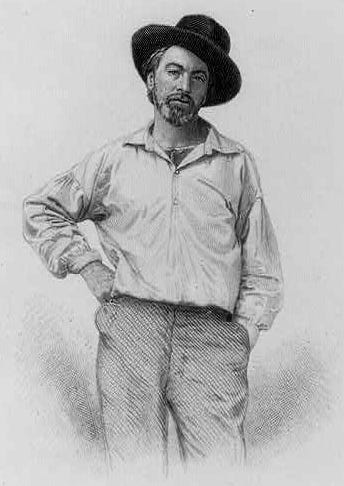There have been people in our history who know where Americans draw strength. They understand the depths of the danger inherent in this experiment of self-governance, but love it anyhow. Are devoted to it.
“I say we had best look our time and lands searchingly in the face, like a physician diagnosing some deep disease. Never was there, perhaps, more hollowness at heart than at present, and here in the United States. Genuine belief seems to have left us. The underlying principles of The States are not honestly believed in… The spectacle is appalling. We live in an atmosphere of hypocrisy throughout. The men believe not in the women, nor the women in the men. A scornful superciliousness rules in literature. The aim is to find something to make fun of. A lot of churches, sects… usurp the name of religion….From deceit in the spirit, the mother of all false deeds, the offspring is already incalculable…. The depravity of the business classes of our country is not less than has been supposed, but infinitely greater... The great cities reek with respectable as much as non-respectable robbery and scoundrelism… In business… the one sole object is, by any means, pecuniary gain. The magician's serpent in the fable ate up all the other serpents ; and money-making is our magician's serpent… In vain…we annex Texas, California, Alaska, and reach north for Canada and south for Cuba. It is as if we were somehow being endowed with a vast and more and more thoroughly-appointed body, and then left with little or no soul.”
—Walt Whitman, Democratic Vistas 1869-70
Yet he believed America was the greatest experiment humanity had yet produced. His views stand up against more-often cited contemporaries, like de Tocqueville, who appreciated the American character but put faith in institutions of democracy. Whitman’s thinking was “…not the result of studying up on political economy, but of the ordinary sense, observing, wandering among men, These States, these stirring years of war and peace. I will not gloss over the appalling dangers of universal suffrage in the United States. In fact, it is to admit and face these dangers I am writing… For know you not, dear, earnest reader, that the people of our land may all know how to read and write, and may all possess the right to vote and yet the main things may be entirely lacking? …the problem of humanity all over the civilized world is social and religious, and is to be finally met and treated by literature.”
Whitman felt progress from a thousand years of feudalism all lead to one American notion: “The idea that Something a man is… standing apart from all else, divine in his own right, and a woman in hers, sole and untouchable by any canons of authority, or any rule derived from precedent, state-safety, the acts of legislatures, or even from what is called religion, modesty, or art. The radiation of this truth is the key of the most significant doings of our immediately preceding three centuries, and has been the political genesis and life of America. Advancing visibly, it still more advances invisibly. Underneath… society, [and] politics… .we see steadily pressing ahead, and strengthening itself… this image of completeness in separatism, of individual personal dignity, of a single person, either male or female, characterized in the main, not from extrinsic acquirements or position, but in the pride of himself or herself alone… the simple idea that the last, best dependence is to be upon Humanity itself, and its own inherent, normal, full-grown qualities, without any superstitious support whatever. This idea of perfect individualism it is indeed that deepest tinges and gives character to the idea of the Aggregate.”
A strong majority of Americans know this in their core. Nothing a politician can do will bring more destruction than to offend the American sense of the value of the average, free individual. It offends us as a group. Though they may call it a variety of things, Americans believe in what Whitman called the Divine Average: the view of us as a society built around respect, decency, and affection for that which is divine in individual persons, in every person, independent of their station in life.
Here’s a link to a fine talk by a modern patriot who helps us feel and understand this belief from which we all draw strength.




